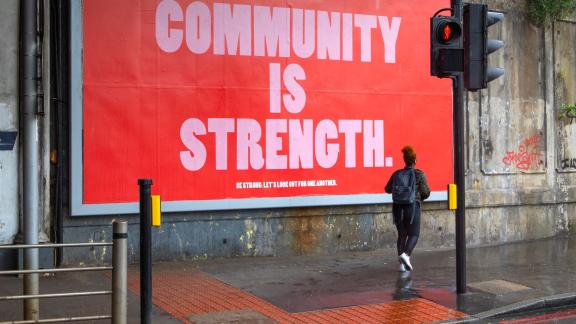Supporting new community-led approaches to health and wellbeing

Local neighbourhood teams from across England have come together to pioneer new community-led approaches to health and wellbeing.
Teams from the six sites will explore joined-up, community-led approaches to improve population health and reduce health inequalities, focusing on a specific issue in their community. These range from tackling social isolation to enabling residents to feel more empowered to have difficult conversations about their health and wellbeing and a great sense of self-advocacy.
These projects come on the back of an 18-month programme launched by the NHS Confederation and Local Trust in April 2025 to promote and test community-led, hyperlocal approaches to health, putting power in the hands of the people who know their neighbourhoods best to drive change and co-design solutions in partnership with local health systems.
Representatives from six selected local sites who are part of the action research project came together on Tuesday 9 September to share and reflect on details of their projects so far, the challenges they are seeking to overcome and their action plan for brokering practical partnerships in order to improve the health and wellbeing of people and places.
Each of the six participating neighbourhood sites is tackling a different challenge, but all are rooted in community priorities:
- Battersea Alliance (London): Embedding and sustaining a grassroots model of community prescribing that connects residents with support through peer-led engagement.
- Blackbridge Charitable Community Benefit Society (Gloucester): Improving the quality of green spaces in in Podsmead to enable long term, sustainable solutions to better the health of its most vulnerable community members. Building levels of trust between the local population and local services.
- Brereton and Rugeley Vysions (Staffordshire): To improve health and wellbeing in Brereton by building on local community strengths — including befriending, sports and leisure activities, and community events — to reduce loneliness and isolation.
- Par Bay, The Hub at Cornubia (Cornwall): Launching a rural transport initiative to tackle isolation and improve access to services, while strengthening volunteer networks and cross-sector collaboration.
- West End Morecambe (Lancashire): Addressing deep social isolation through data analysis, lived experience storytelling, and resident-led interventions.
- The Centre (West Cumbria): Developing solutions for difficult conversations to help residents navigate difficult topics and advocate for themselves.
The programme, designed to be highly practical, is supported by Innovation Unit, as the action research delivery partner, and Health Innovation South West who will help capture and share learning and evaluate impact.
As the programme progresses, the NHS Confederation will continue to share learning to influence and inform national policy, supporting the development of a Neighbourhood Health Service.
Discussions at the workshop focused on community engagement, the importance of building trust and social capital. Insights included about the need for stronger representation of community-led organisations, the need to simplify complex systems that often hinder collaboration, and to rebalance relationships between statutory services and communities to enable genuine partnership.
The meeting follows a series of facilitated workshops locally over recent months. Over the next year, local neighbourhood teams will be supported through regular national peer learning sessions bringing the six sites together, as well as bi-monthly coaching sessions.
Ruth Rankine, director of primary care and neighbourhood lead at the NHS Confederation, said: “The project is really practical and is fundamentally about creating the tools that enable partners in the community and partners in health, local authorities and beyond to work together more effectively. The most effective health interventions must begin with communities identifying priorities and shaping solutions themselves, in partnership with their local services.
“If we are going to move to a neighbourhood model of care, we have to reset the relationship between the NHS, the wider public sector and communities. Key to this is increasing community resilience and building on trusted bodies and familiar expertise that are rooted in communities.”
Local Trust chief executive Rachel Rowney said: “Healthcare in England is at a pivotal moment. Across the NHS and wider health system, there’s growing recognition that prevention, connection and collaboration are key to improving health outcomes. The action research programme is working in both current and former Big Local areas, and so forms part of our legacy at Local Trust to help communities not only connect better with the NHS and statutory services, but for them to take the lead in the emerging neighbourhood health agenda.”
The programme builds on the NHS Confederation’s wider work around neighbourhood health, which includes influencing emerging neighbourhood policy and supporting integrated neighbourhood action learning sets with members across NHS, local government and other services.
If you’re working in health, policy, or community development, you can sign up for programme updates.



